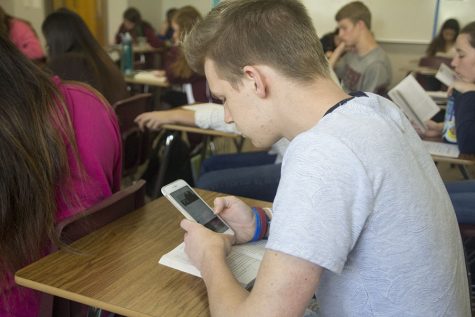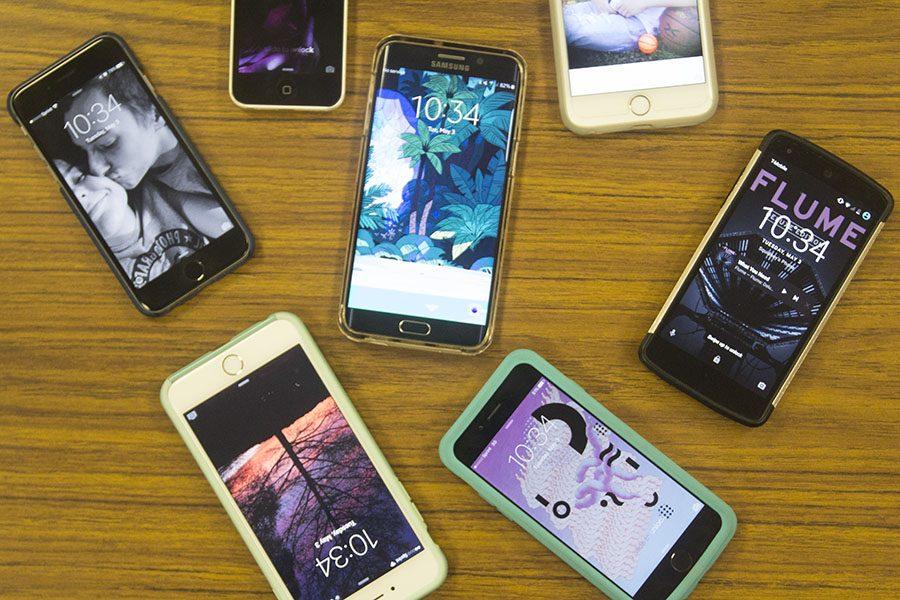Phoning it in
Constant access to cell phone distracts students from class
May 1, 2016
English class. 10:30 a.m. The teacher is lecturing, but many eyes are glued to small screens. The same devices that were intended to improve learning conditions has resulted in a complete lapse of concentration for those using them.
According to Pewresearch.org, 78 percent of US teens own a cell phone. They’ve become an integral part of society and offer easy access to the internet, apps and social media. But that instantaneous access can lead to a lack of concentration during lessons and obsession with digital devices.
“I use my phone for about six hours a day,” freshman Lindsey Sanders said. “I’m usually using it for social media such as Instagram, Musical.ly or Snapchat. Often, I’ll miss out on sleep, and on occasion, I won’t pay attention in class. Sometimes I won’t even do my homework.”
A common symptom of phone addiction is the occurrence of phantom vibrations, or PVs. A PV is the sensation that your phone is ringing or vibrating even when it isn’t. According to BBC.com, an estimated 80 percent of phone addicts claim to have experienced PVs.
“I get those vibrations a lot during the day,” freshman Taylor Runnells said. “It’s very annoying and usually happens when I’m trying to focus.”
In addition to being a distraction during the day, studies have shown that obsessive cell phone use can also be detrimental to a person’s health. According to the American Cancer Society, cell phones emit radiofrequency energy, a type of radiation. Some tissues near the phone can absorb these rays.

A study taken by the ACS showed that when a cell phone was used continually for 50 minutes, brain cells closest to the phone produced significantly more glucose than those cells opposite the phone. The radiation waves are known to increase the risk of brain cancer. Another study showed that for every 10 years a person uses a cell phone, their risk of brain cancer nearly doubles.
“Only keep the apps that you will need on a daily basis,” freshman Darrin Redford said. “Also, make more calls than texts. It is the closest you can get to being in the same room with a person and it also takes up much less time to get the point across.”
Cell phones can be an innovative and productive tool, but when not used in moderation, they can distract from important aspects of life like education and productivity.
“You should always have a set amount of hours that you plan to use your phone every day,” Runnells said. “It’s extremely important to put schoolwork first.”



